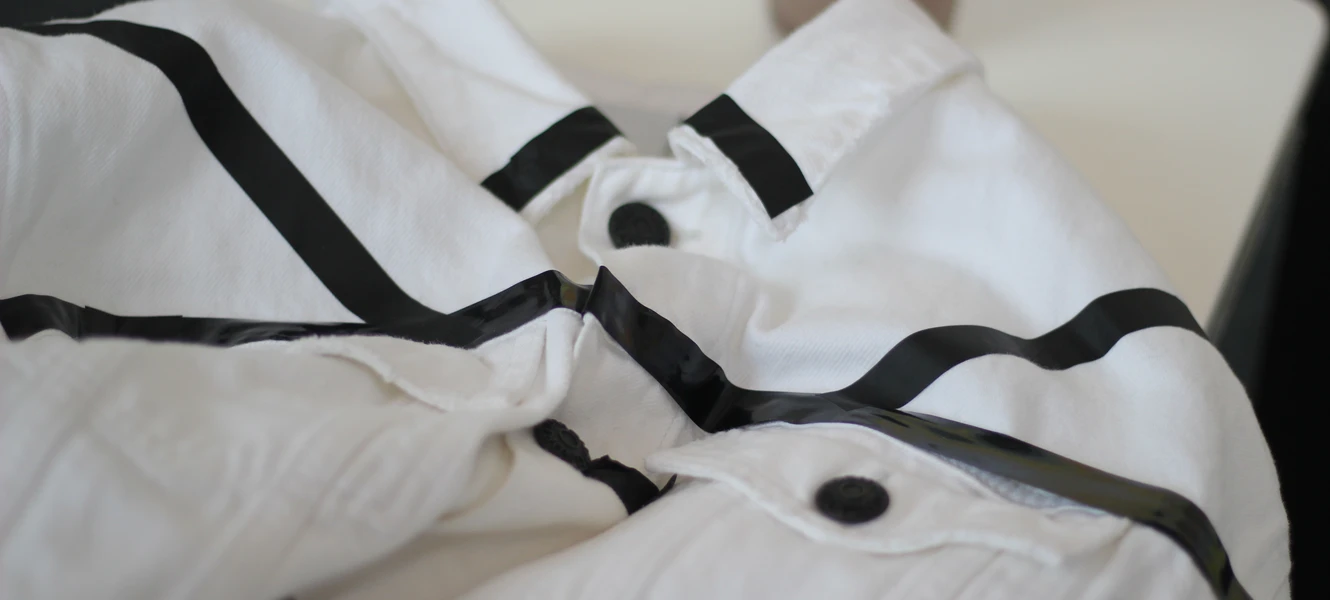
Design meets sci-fi
Friday 7 February marked the culmination of a two-week design journey for 75 Danish and international MA students who have been part of the school’s annual DesignCamp. Their travel destination was something as exotic as possible futures in order to acquire a different view on how to solve the challenges of the present through design.
Their journey’s starting point was digitalisation and industry 4.0, and so the school had invited four companies along for the ride: Re-Circle Hub, Leap Technology Aps, Nord Modules A/S and Danish Wind Power Academy Aps to develop near-future scenarios of company technologies, including robotics, sensors, cyber security and data tracking. With short films and probes the students presented their design solutions on the last day of camp.
Human power plants
One group have gazed into the crystal ball for Leap Technology. Using speculative design and design fiction they have created a world where rigid materials no longer exist, and where we can no longer rely on wind and solar energy. Here energy has become a hardcore currency – for better and for worse. Based on a piece of elastic material of silicone and carbon the students have spotted an opportunity to integrate the company’s sensor technology in garments and directly onto the skin and perhaps even inject it in liquid form into the human body to utilise the energy we produce through movement – ultimately on a cellular level.
Behind the story and design are Emil Østergaard, Sarah Alsing, Elena Werr, Sarafina Andersen, Freja Hørberg and Petra Vicianová.
Sarafina Andersen explains how working with visionary design has opened up a new world for her:
- It has given design a whole new dimension. And it has been motivating and inspiring to meet experts who represent both science and art. The process has truly allowed us to let our imaginations run wild.
For Alan Poole, General Manager at Leap Technology, participating in the camp has been a little bit like coming home. He is a trained designer but for many years his work has been focused on technology development:
- The Camp has openend my eyes to the importance of empathy. We work with smart technology, and empathy has an inherent mechanical element that we consider, for instance of surfaces touch and how objects bend and turn. But the designers have very much highlighted the importance of human interaction and the empathic encounter between humans and technology. This I will definitely take with me!
Bionic organisms
Another group, with students Antonio Fedder, Eszeter Eva Smid, Eun Sun Park, Peiyan Li, Katrine Kjeldsen and Josephine Falberg, have created a future scenario where elctronic devices have merged with natural materials and evolved into new organisms, BLOb – Bionic Large Objects, which engage in a whole new cycle of life.
Antonio Fedder from Germany explains the relevance of scenario design:
- It enables us to come up with solutions to problems before they occur. For instance that someday, humans might die from the grief of losing our electronic devices.
All of the camp scenarios are created with sustainability, social inclusion and creativity in mind. Areas which represent Design School Kolding's strategic focus and relate to the UN Global Goals.
The designer as storyteller
Barnabas Wetton is long-time teacher and facilitator of the DesignCamp, and there is no doubt in his mind that the Camp makes a real difference:
- More than previous camps this camp has been about freeing ourselves from notions of specific customer segments and so on. We have dared to work with visionary design – carried forward by insight and empathy and by technologies that can help us solve current problems. This makes us able to propose a direction for companies and society in general. Storytelling enables us to create visions that can shape our future. And designers are exceptionally good at telling stories.
About the DesignCamp
Since 2009, Design School Kolding’s DesignCamp has evolved into an internationally recognised development platform creating design concepts for the creation of new and innovative design concepts. For two weeks the Camp joins Danish and international MA students, companies, designers, researchers and others with an interest in design around an intense design process, which results in concrete solutions to real challenges.
The DesignCamp2020 was supported by the innovation network D2i - Design to innovate.
“The designers have very much highlighted the importance of human interaction and the empathic encounter between humans and technology.Alan Poole, General Manager at Leap Technology”


